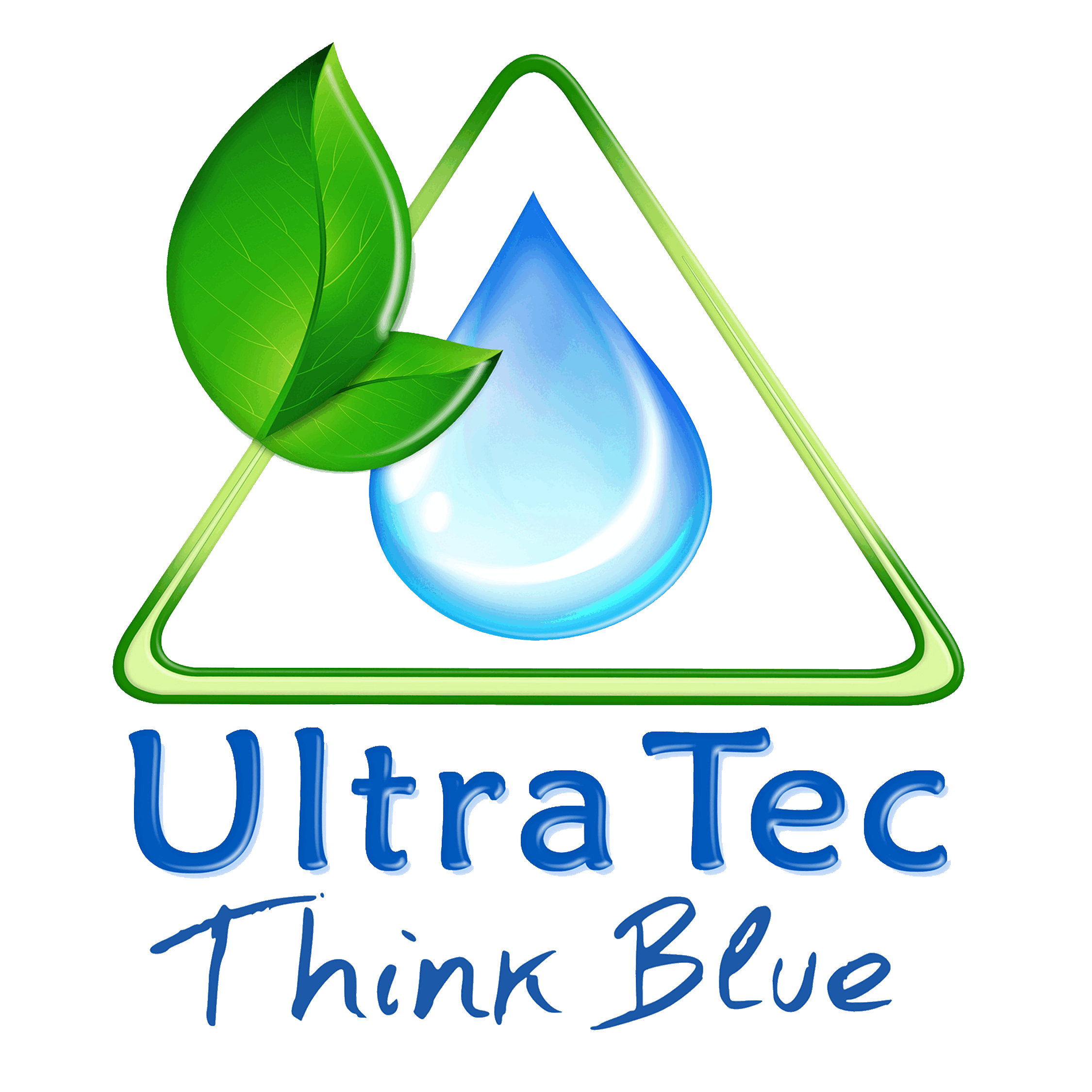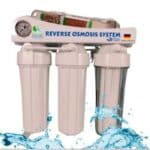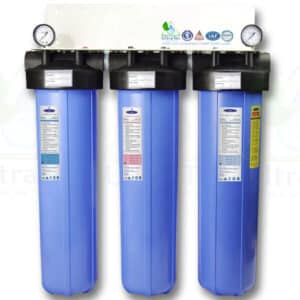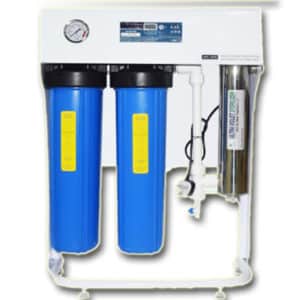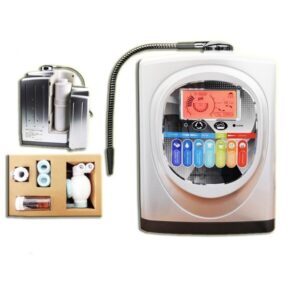Water Softener
You can trust the specialists of Water Treatment at Ultra Tec® to offer you a good effective water softener, not the salt-free fictional one that doesn’t soften the water. With water softener from Ultra Tec® Systems, you will use up to 75% less soap and save up to 30% on water heating costs while saving your plumbing and appliances.
Its choice makes your clothes whiter and brighter, and of course, it makes cleaning a breeze. You eliminate marks, streaks, and scum on showers and fixtures, and one of the best parts is that you carry spot-free dishes and silverware.
You know that cost is important when you are shopping for a water softener, but even more important are four further factors:
- Efficiency – Our Softeners use up to 75% less water and salt
- Warranty – Many of our softeners have more than double the warranty of other softeners
- Support – US Water’s Legendary Technical Support after the sale is unparalleled in our industry
- Technology ‐ Our Smartphone Technology is simple and gives you total control over your water softener
Reverse Osmosis
Our Whole House Reverse Osmosis (RO) Systems are engineered to be the best on the market with extreme durability, reliability, and a superior level of water systems.
Disinfection Systems
The very best options for water disinfection for the whole house are several methods that can be used effectively for the disinfection of water.
Whole House Water Sterilizer
There are many factors to consider before you buy one. Aims to equip you with the necessary information to ensure you make the right decision for your Whole House Sterilizer Filter.
Alkaline RO System
Reverse osmosis is an effective and efficient water purification technology that removes most contaminants and dissolved salts from water, making it clean and pure.
| Soft water’s advantage is its cost-saving benefits. |
| Detergents up to 12X more effective when cleaning |
| Use up to 70% less dish and cloth detergents |
| No scale buildup water heater efficiency is maintained |
| Overall appliance lifetime is maintained |
| Less cleaning products are required to purchase. |
| Moisturized / healthier skin and hair |
| Cleaner, spot-free glass dishes |
| Cleaner clothes and whiter whites |
| The preserved look of faucets and fixtures |
| Hard water’s disadvantage is that it can be expensive. |
| Detergents are not as effective at cleaning. |
| Washing clothes and dishes requires more detergents |
| Scale buildup degrades water heater efficiency over time |
| Overall appliance lifetime is decreased |
| More cleaning products are required to clean scale buildup. |
| Dry / damaged hair and skin |
| Unsightly film on glass dishes |
| Clothes fade faster, and dingy whites |
| Scum, streaks, and spots ruin faucets and fixtures |
The first and most important reason to use a home water softener is to remove the hard minerals from your water. Hard water clogs the plumbing and any water-based application that relies on the plumbing.
With soft water, you will no longer need to worry about rising energy bills because your appliances aren’t working as well or expensive repair costs. You will also benefit from longer-lasting clothing, more effective detergents, and a clean feeling on your skin after a shower or bath.
Water softener systems remove hardness minerals and replace them with sodium ions. Water conditioners are devices that help prevent hardness-forming minerals from forming scale. They use physical media to inhibit the scale from building up by neutralizing its hardness.
Because water conditioners use a physical media instead of a chemical media, they are sometimes considered a greener alternative in areas where it is forbidden to use salt. However, water conditioners do not effectively remove hardness from the water supply, as the only way to do this is with a salt-based media.
Read more about the differences between water softeners and water conditioners.
The US Department of Energy says that “water heating can account for 14%-25% of the energy consumed in your home.” It is a home’s second-highest energy-consuming area, next to heating and cooling. The amount of minerals dissolved in water can cause it to take longer to heat, increasing energy costs.
A study conducted in 2009 by the Water Quality Research Foundation in conjunction with the Battelle Memorial Institute, known as The Battelle Study, conducted tests to help determine how much energy savings a whole-house water softener can provide homeowners. The results of that study indicate that untreated hard water added costs to water heating – up to 48% in some cases.
The Battelle Study also found hard water to rapidly lead to clogged shower heads, sometimes after as little as a year and a half of regular use. After just one week of constant testing with hard water, more than three-fourths of shower head nozzles became clogged, according to laboratory results. Shower heads using water treated by a water softening system performed nearly as well as on the day they were installed.
A second part of the Battelle Study compared detergent dose, water hardness, and washing temperature to see if hardness impacted detergent savings. The study included tests that removed difficult soils and evaluated spotting and filming. Researchers found that softened water uses almost 30% less detergent but cleans as well as water at a 10 gpg hardness level. That detergent saving rises to nearly 70% when comparing soft water with water at a 25 gpg level.
“Better performance and savings can be achieved with softened water, ” the authors concluded.
Water treated with a water softener system might not only save consumers money. Still, it could also be environmentally friendly because it helps reduce harmful detergents from water streams. In areas with very hard water, consumers can often cut detergent use in dishwashers and washing machines by more than 50% after softening and get the same results.
Many people hesitate to use water softening systems because they may be under the impression that the equipment regenerates quite frequently and puts a high load of sodium salts into the wastewater. This is not true; the average family of four people would require whole-house water softener regeneration approximately two or three times a week.
The water quality improvement industry has sought to sort out the factual information on water softener system effluent. A recent septic tank study from the Water Quality Association indicates no adverse effects when water-softening wastewater is discharged into properly installed private septic systems.
Several additional reports also explain further evidence of the hardness ions in a softener’s regeneration waste causing less clogging and maintaining higher permeability than the regular septic tank effluent.
Click here to see the full study information from the Water Quality Association.
WATER SOFTENER ALTERNATIVES
There are alternatives if you live in an area with tight restrictions on water softener system usage or a ban on salt-based systems. Check out our salt-free conditioners!
